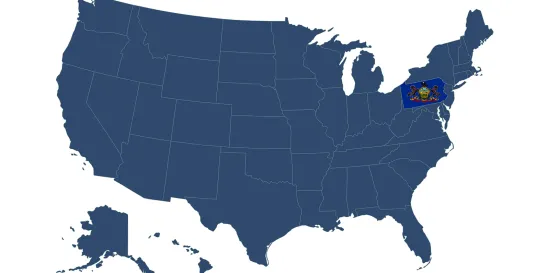Pennsylvania recently introduced its own Commercial Finance Disclosure Law (“CFDL”), following the lead of other states with laws requiring consumer-like disclosures in certain commercial loans, including California, Connecticut, Florida, Georgia, New York, Virginia, and Utah. Pennsylvania House Bill 1792 is substantially similar to a bill introduced in a prior legislative session.
Unlike other states, Pennsylvania’s approach does not propose comprehensive multi-section legislation. Instead, it proposes an abbreviated, two-section amendment to Pennsylvania’s Loan Interest and Protection Law (PALIPL), a law focused primarily on consumer lending protection in the residential mortgage lending space and a law that supplements other existing lending laws.
House Bill 1792 proposes to expand the reach of the PALIPL to include “a person who extends a specific offer of commercial financing to a recipient” and would require the lender to disclose consumer-type information to “small businesses” at the time of the financing offer. It would also require a signature from the small business for each disclosure before executing the commercial financing transaction.
Small business is defined as “a business of fewer than five hundred (500) employees that is presented a specific commercial financing offer by a [lender].” “Person” under the PALIPL appears to have little limitation, if any. The disclosures required include the total amount of funds to be provided, the total dollar cost of the financing, the term, payment terms, prepayment policies, and the total cost of the financing expressed as an annualized rate. There is no loan amount reference, unlike other commercial financing disclosure laws.
What materially differentiates House Bill 1792 from other CFDLs to date is that it expressly provides for a private right of action, in addition to regulatory enforcement and penalties. This means a borrower may commence an action against the lender for disclosure violations and could collect attorneys’ fees in such an action. A private right of action currently exists under the PALIPL, and the bill amendment adding the commercial finance disclosure requirements does not negate it. Accordingly, a violation of commercial finance disclosure requirements would provide a private right of action as one of several remedies. It remains unclear if the bill’s sponsors intended this deviation from other CFDLs or whether a private right of action was an unintended consequence of adding provisions to the PALIPL and will be addressed in the coming legislative session.
As of the date of this post, the following states have proposed various forms of commercial financing laws this legislative session: Illinois (Senate Bill 2234 and House Bill 3064), Kansas (Senate Bill 245), Maryland (Senate Bill 496, which failed); Mississippi (Senate Bill 2619 and House Bill 1271, both of which failed), Missouri (Senate Bill 187 and House Bill 584, both of which failed), North Carolina (Senate Bill 539 and House Bill 662), Texas (Senate Bill 1918 and House Bill 4359, both of which failed). Bills remain pending in New Jersey from the carry-over session (Senate Bill 819 and House Bill 2150). Proposed commercial financing laws have also been proposed at the federal level (Senate Bill 2021 and House Bill 4192).




 />i
/>i